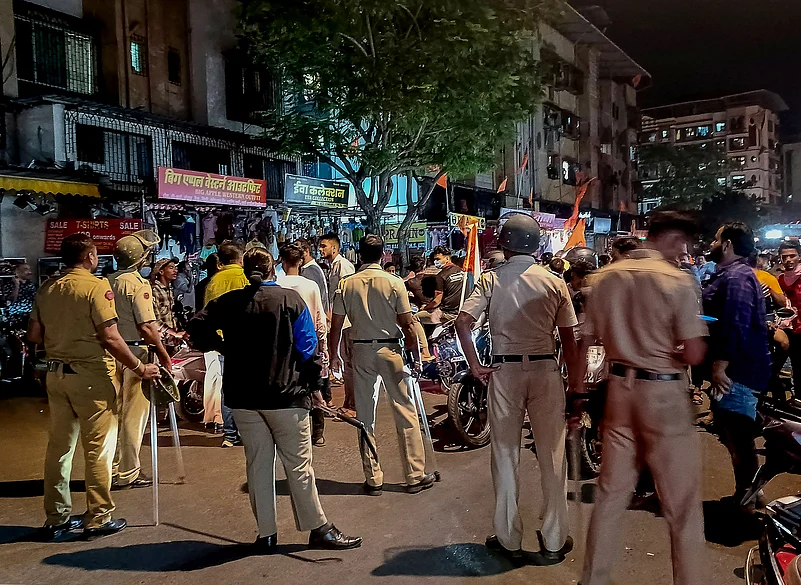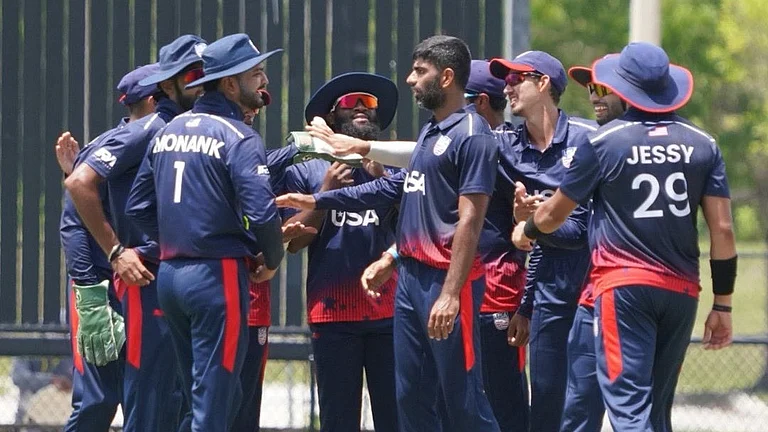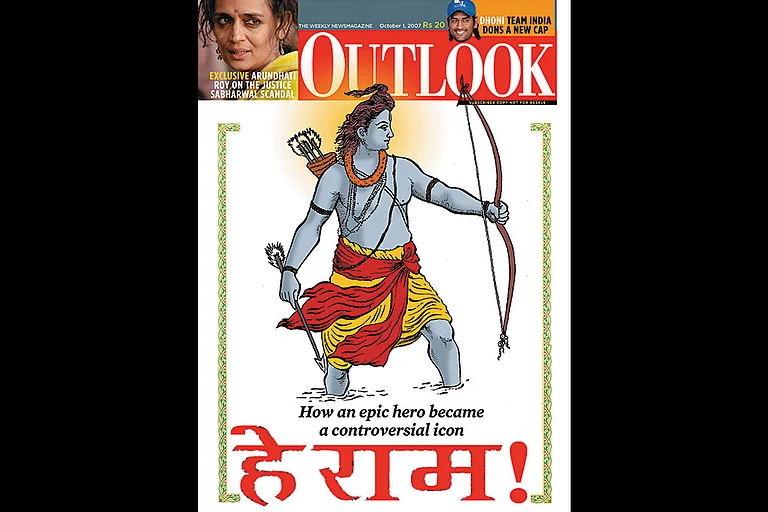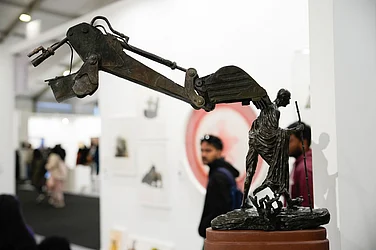Communal violence erupted for a second consecutive day on Mumbai's Mira Road following the inauguration of the Ram Janmbhoomi Temple in Ayodhya. The clashes, which were captured in a viral video, showcased an attack on an auto-rickshaw and the vandalization of shops and vehicles, revealing heightened tensions between the two communities. The incident originated from a dispute near the Naya Nagar area, prompting an investigation by Deputy Commissioner of Police, Jayant Bajbale.
According to Deputy Commissioner Jayant Bajbale, the conflict began when individuals from the Hindu community raised slogans in the Naya Nagar area of Mira Road. The clashes unfolded around 11 pm on Sunday, with tensions escalating during the Ram Mandir Pran Pratishtha.
Amid the chaos, one victim reported being forced to chant religious slogans during the violence. In response, Maharashtra Deputy Chief Minister Devendra Fadnavis issued a stern warning against rioters and emphasized a zero-tolerance approach. Thirteen individuals have been arrested, and investigations, including the analysis of CCTV footage, are ongoing to identify and apprehend others involved in the unrest.
To restore law and order, the Mira Bhaindar Municipal Corporation deployed bulldozers to demolish "illegal" roadside stalls in the Naya Nagar area. Devendra Fadnavis's warning of strict measures against rioters was followed by decisive action in Mumbai.
However, criticism was directed at the police by BJP MLA Nitesh Rane, who blamed them for communal disturbances and raised concerns about the safety of the Hindu community. The clashes in Mumbai have led to a series of arrests, government warnings, and security measures to curb further violence.
In a broader context, incidents of violence and vandalism marred the Ram Janmbhoomi consecration celebrations across the country on January 22. From Telangana to Bihar and Maharashtra, various regions witnessed attacks on religious establishments and clashes between communities.
In Telangana's Narayanpet district, a procession celebrating the Ram Temple consecration allegedly burned crackers in front of a mosque, leading to tensions. The disturbances were not limited to Maharashtra and its adjacent states. In Uttar Pradesh capital Lucknow, a video surfaced of a hateful song being played during a procession celebrating the Ram Temple event. The organizers of the public feast where the song was played are under investigation, with two arrests made under IPC 294. Similarly, in Bihar's Darbhanga district, a firecracker thrown into a Muslim graveyard during a celebration resulted in a fire. Videos of these incidents circulated on social media, underscoring the gravity of the situation.
Gujarat reported stone-pelting on a procession in Vadodara, and in Madhya Pradesh's Jhabua, a saffron flag was planted on top of a church. The incidents across multiple states prompted responses from local authorities, including arrests, investigations, and security measures.
In Karnataka's Kalaburgi district, multiple confrontations between two communities took place, including stone-pelting and the defacement of an Ambedkar statue in Kotnoor village. To manage the situation, a prohibitory order under section 144 has been imposed in Wadi till January 25.
As the nation grapples with these incidents, authorities emphasize the importance of maintaining peace and harmony. Investigations into the various cases are ongoing, with a focus on identifying and holding accountable those responsible for the violence. The aftermath of the Ram Mandir inauguration reveals the delicate balance needed to navigate religious celebrations in a diverse and multicultural society like India.
The incidents of violence and unrest surrounding the Ram Mandir consecration have cast a shadow over the celebratory atmosphere that should have accompanied this historic event. The clashes in Mumbai's Mira Road, along with disturbances reported in various states, highlight the challenges of managing communal sentiments during religious ceremonies.
The incidents in different states underline the complexity of managing diverse religious sentiments. The alleged attacks on mosques, graveyards, and the defacement of religious symbols in various regions demand a nuanced and coordinated response from authorities.
The deployment of bulldozers to clear encroachments in response to communal tensions reflects a reactive approach. However, the broader issue of inter-community dialogue and understanding remains a critical aspect that needs attention. The government's emphasis on zero tolerance for those attempting to disturb law and order is vital, but a parallel effort towards fostering communal harmony is equally essential.
As investigations continue, the use of social media to disseminate information and possibly exacerbate tensions has prompted warnings from local police. The aftermath of the Ram Mandir inauguration calls for a comprehensive approach that addresses both immediate security concerns and the underlying factors contributing to communal tensions.


























